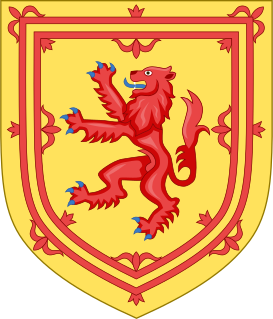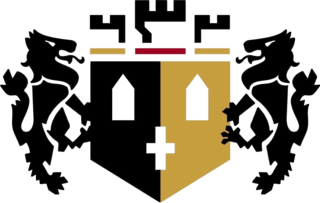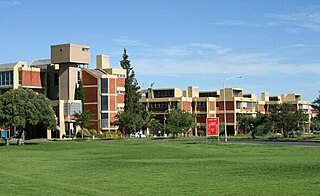
Ireland is a parliamentary, representative democratic republic and a member state of the European Union. While the head of state is the popularly elected President of Ireland, it is a largely ceremonial position, with real political power being vested in the Taoiseach, who is nominated by the Dáil and is the head of the government.

Politics of Namibia takes place in a framework of a semi-presidential representative democratic republic, whereby the President of Namibia is both head of state and head of government, and of a pluriform multi-party system. Executive power is exercised by both the president and the government. Legislative power is vested in the two chambers of Parliament. The judiciary is independent of the executive and the legislature.

Politics of Belize takes place in a framework of a parliamentary representative democratic monarchy, whereby Queen Elizabeth II serves as head of state and the prime minister is the head of government, and of a multi-party system. Executive power is exercised by the government. Legislative power is vested in both the government and the Parliament of Belize.
In England, local authorities are required to adopt one of three types of executive arrangements, which govern how decisions will be made within the council. Before the passing of the Localism Act 2011 there were two principal modes of executive arrangements, namely the "leader and cabinet" and the "elected mayor and cabinet" models. A third option "elected mayor and council manager" was withdrawn in 2007. Since 2012, principal authorities have been allowed to adopt the "committee system" form of governance.
In many countries, a mayor is the highest-ranking official in a municipal government such as that of a city or a town. Worldwide, there is a wide variance in local laws and customs regarding the powers and responsibilities of a mayor as well as the means by which a mayor is elected or otherwise mandated. Depending on the system chosen, a mayor may be the chief executive officer of the municipal government, may simply chair a multi-member governing body with little or no independent power, or may play a solely ceremonial role. A mayor's duties and responsibilities may be to appoint and oversee municipal managers and employees, provide basic governmental services to constituents, and execute the laws and ordinances passed by a municipal governing body. Options for selection of a mayor include direct election by the public, or selection by an elected governing council or board.

Local government in Scotland is organised through 32 unitary authorities designated as councils which consist of councillors elected every five years by registered voters in each of the council areas.
A town council, city council or municipal council is a form of local government for small municipalities.
A community council is a public representative body in Great Britain.
Provost is a title held by the civic heads of local governments in Scotland. It is similar in use to the title of mayor in other parts of the English-speaking world.
A municipal council is the legislative body of a municipality or local government area. Depending on the location and classification of the municipality it may be known as a city council,town council, town board, community council, rural council,village council, or board of aldermen.

Directly elected mayors in England and Wales are local government executive leaders who have been directly elected by the people who live in a local authority area. The first such political post was the mayor of London, created as the executive of the Greater London Authority in 2000 as part of a reform of the local government of Greater London. Since the Local Government Act 2000, all of the several hundred principal local councils in England and Wales are required to review their executive arrangements.

Her Majesty's Government in Belize, also referred to as the Belizean Government is the democratic administrative authority of Belize, a constitutional monarchy under a parliamentary democracy. It was formed in 1981 after gaining sovereignty from the United Kingdom. The constitution is the supreme law of Belize.

The Greater Manchester Combined Authority (GMCA) is a combined authority for Greater Manchester, England. It was established on 1 April 2011 and consists of 11 members; 10 indirectly elected members, each a directly elected councillor from one of the ten metropolitan boroughs that comprise Greater Manchester together with the directly elected Mayor of Greater Manchester. The authority derives most of its powers from the Local Government Act 2000 and Local Democracy, Economic Development and Construction Act 2009, and replaced a range of single-purpose joint boards and quangos to provide a formal administrative authority for Greater Manchester for the first time since the abolition of the Greater Manchester County Council in 1986.

Plymouth City Council is the unitary authority for Plymouth, Devon. It has traditionally been controlled by Labour or the Conservatives. The council is currently in a state of no overall control, with the Conservatives governing as a minority administration.

The Government of Namibia consists of the executive, the legislative and the judiciary branches. The Cabinet is the executive organ of government, implementing the laws of the country. It consists of the President, the Prime Minister and his deputy, as well as the Ministers. The legislative organs of government are the National Council and the National Assembly. They make the laws of the country. The judiciary organs of government are the courts. The highest court of Namibia is the Supreme Court. There is also the High Court, and lower courts.

Northampton Borough Council was the borough council and non-metropolitan district responsible for local government in the large town of Northampton in England. In 2021 the council was abolished and succeeded by West Northamptonshire Council; a unitary authority, and the Northampton Town Council, a parish council.

Traditional leadership of Namibia is a governing structure in Namibia based on the ethnicity of the indigenous people of the territory. Acceptance of a traditional authority is vested in the Government of Namibia. There are 51 recognised traditional authorities and a further 40 pending applications.
Omukwaniilwa Immanuel Kauluma Elifas was a chief of the Ondonga, a sub-tribe of Owambo people since 28 August 1975, in Namibia having succeeded his brother the late Chief Fillemon Elifas Shuumbwa who was gunned down the same year at Onamagongwa. The Ondonga tribal area is situated around Namutoni on the eastern edge of Etosha pan in northern Namibia. Kauluma was also the Chairperson of the Council of Traditional Leaders for many years. He was succeeded as King by the designate Omukwaniilwa of Ondonga, his great-grandson Fillemon Shuumbwa Nangolo.

University of Namibia Student Representative Council was founded on 20 February 1992, and is recognised as the legal representative body for the students of the University of Namibia by the University of Namibia Act 18 of 1992. It is responsible for representing the interests of the students to the management of the University and to local and national government. It consists of representatives from all twelve campuses across Namibia.

Local and regional elections were held in Namibia on 25 November 2020 to elect new local and regional councils. The previous round of elections was held in 2015 and won by the ruling SWAPO party.









